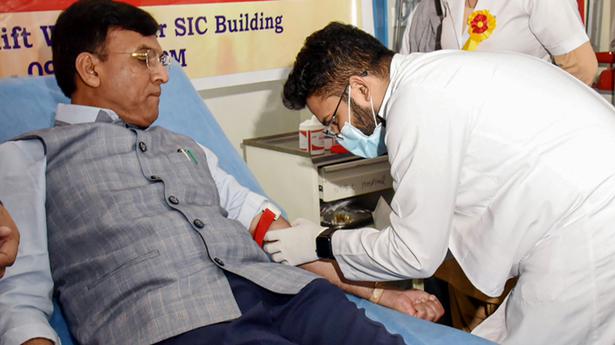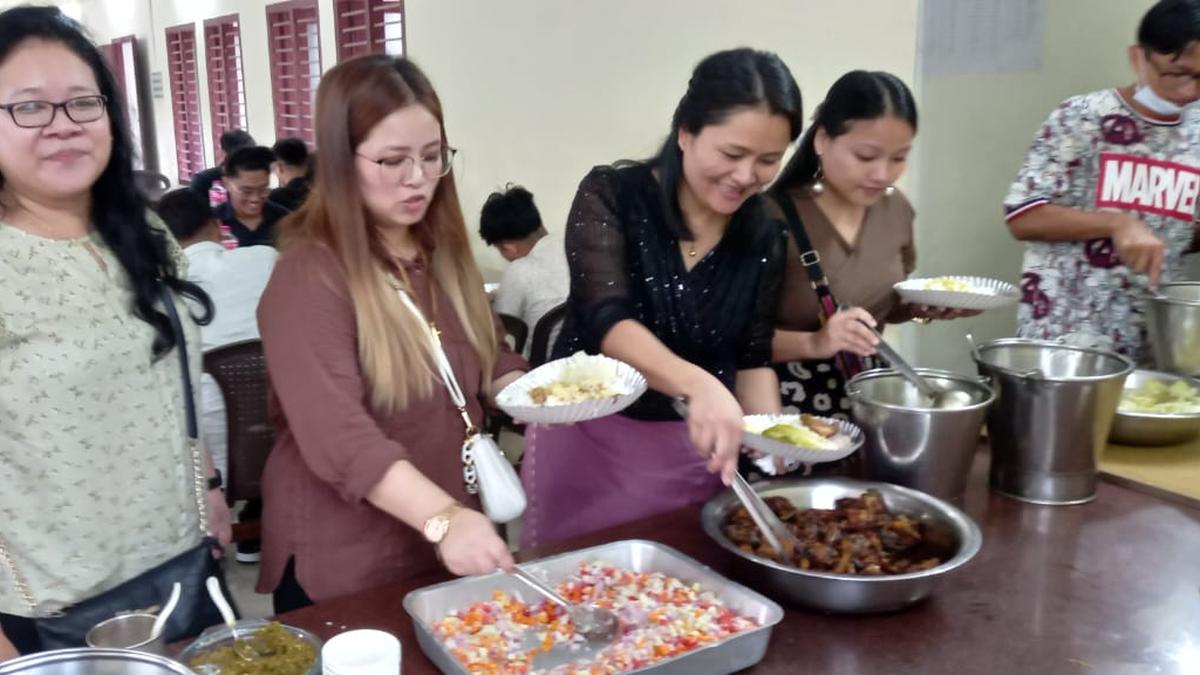The drive aims to collect close to one lakh units of blood in a day besides raising awareness about the need for regular non-remunerated voluntary blood donations.
The drive aims to collect close to one lakh units of blood in a day besides raising awareness about the need for regular non-remunerated voluntary blood donations.
A 15-day blood donation drive began on the occasion of Prime Minister Narendra Modi’s birthday on Saturday, with Union Health Minister Mansukh Mandaviya donating blood at a camp set up at Safdarjung Hospital in New Delhi.
The Minister urged citizens to register on the Aarogya Setu app or e-Raktkosh portal to donate blood as part of the ‘Raktdaan Amrit Mahotsav’, which will be held till October 1 — National Voluntary Blood Donation Day.
So far, 5,922 camps have been approved across the country and 94,833 donors have registered, an official said, adding 20,692 people have donated blood so far.
“Blood donation is a noble cause and given our rich culture and tradition of Seva and Sahyog, I urge and appeal to all citizens to come forward and donate blood as part of the countrywide mega voluntary blood donation drive- Raktdaan Amrit Mahotsav. Donating blood not just fulfills the national requirement but is also a great service to society and humanity,” Mr. Mandaviya said.
The drive aims to collect close to one lakh units of blood in a day besides raising awareness about the need for regular non-remunerated voluntary blood donations.
One unit translates to 350 ml of blood. Stressing the importance of voluntary blood donation, the Union Health Minister said, “Raktdaan Amrit Mahotsav is part of bigger celebrations of the Azadi ka Amrit Mahostav”. The campaign aims to increase awareness about regular non-remunerated voluntary blood donations and ensure that blood or its components (whole blood, packed red blood cells, plasma, platelets) are available, accessible, affordable and safe.
According to the 2021 statistics, India’s annual blood requirement is around 1.5 crore units. In every two seconds, a patient in India needs blood and one out of every three people will need blood in their lifetime, Mr. Mandaviya said.
“Despite the technological advancements, there remains no alternative to blood and one unit of blood can save as many as three lives,” the Minister noted.
He met the donors at the camp and appreciated their efforts. Removing myths surrounding blood donation, the minister said, “A person has five to six litres of blood in his or her body and can donate blood every 90 days.” A human body can recover blood quickly, while it takes few minutes for the white blood cells to recover, 24-48 for the recovery of blood plasma volume, and three weeks each for red blood cells and platelets.
The shelf life of the donated blood is 35 to 42 days. It is also processed into components such as plasma, red blood cells and platelets. Frozen plasma can be used for up to a year, while red blood cells can be used for up to 35-42 days. Platelets need to be used within five days, the official said.
The nationwide drive is supported by the centralised blood bank management information system ‘e-RaktKosh portal’, which will act as a national repository of blood donors.
This will ensure a robust record of blood donors and will expedite blood availability when in need, he said.
Mr. Mandaviya also released a book titled ‘Footprints on the Sands of Time’, showcasing the contribution of Safdarjung Hospital towards healthcare.






